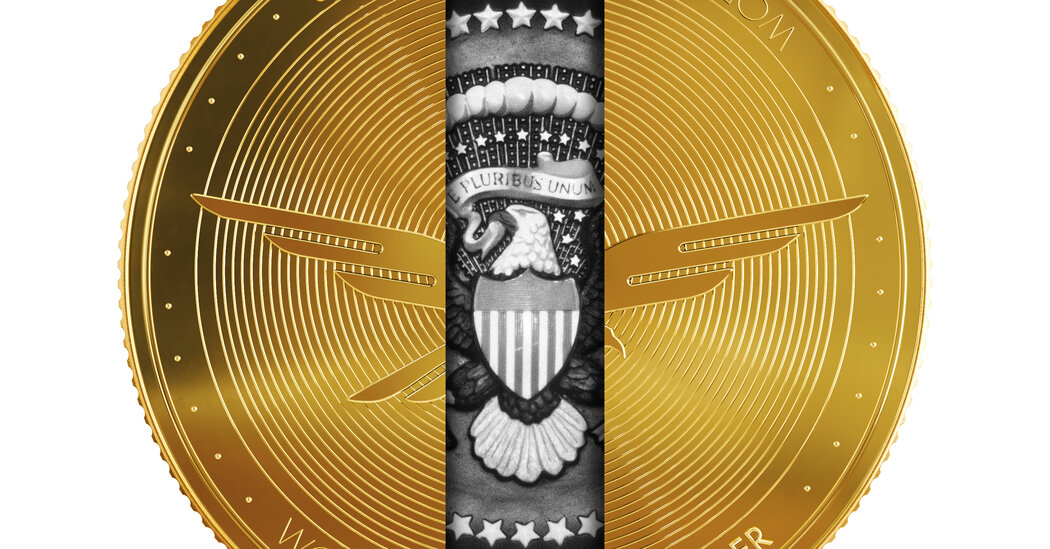The Interplay of Business and Politics: World Liberty Financial and the Trump Administration
In the days leading up to Donald J. Trump’s inauguration, a partnership proposal from World Liberty Financial caught the attention of a cryptocurrency startup based in the Cayman Islands. The pitch, relayed through the encrypted messaging app Signal by Zachary Folkman—formerly of Date Hotter Girls—suggested a mutual investment strategy in which both companies would acquire each other’s digital currencies. However, a significant stipulation was the expectation of a multimillion-dollar payment to World Liberty for the privilege of aligning with the Trump brand.
Initial Reactions and Ethical Concerns
Many startups, including the Cayman Islands firm, deemed the proposal unethical, interpreting it as an attempt to sell a false endorsement from the Trump family. While these companies opted out of the offer, the executives at World Liberty remained unfazed and successfully engaged other firms in similar arrangements, raising over $550 million in sales, a portion of which benefitted the Trump family.
Trump’s Emerging Role in Crypto
With Donald Trump’s return to the White House, new opportunities arose for him to leverage his influence for financial gain through ventures like World Liberty. This entity stands out among his various business interests due to the apparent conflicts of interest it presents. World Liberty, largely owned by a Trump family corporate entity, has blurred the lines between personal business and governmental policy—a phenomenon previously unseen in American politics.
Policy Changes Favoring Cryptocurrency
Under Trump’s leadership, significant policy shifts have benefitted the cryptocurrency industry, including the disbanding of federal task forces that scrutinized crypto operations. Appointments of industry sympathizers, including a former crypto executive as head of the Securities and Exchange Commission, have further eased regulatory pressures on the sector.
Examining Conflicts of Interest
The New York Times has outlined various ways in which World Liberty has directly profited from Trump’s initiatives:
- The announcement of a federal cryptocurrency stockpile, which included investments from World Liberty, resulted in a spike in coin value.
- World Liberty has marketed its cryptocurrency to international investors, creating a unique avenue for foreign businesses to engage with the U.S. political framework.
- Several investors in World Liberty have faced past legal challenges, raising concerns about the ethical implications of their involvement.
- The firm’s initiatives often capitalize on the Trump brand, leading to questions about the potential for financial gains through privileged access.
Concerns from Industry Veterans
Prominent figures in cryptocurrency have expressed unease over the implications of World Liberty’s dealings. “It’s a black spot on our industry,” noted Andre Cronje, founder of SonicLabs, emphasizing the ethical quandaries tied to such partnerships.
World Liberty spokesperson David Wachsman has contested the notion that their deals represent a quid pro quo. He characterized the arrangements as mutually beneficial investments rather than one-sided payments for endorsements.
The Personal Stakes for the Trump Family
With the Trump family owning 60% of World Liberty, the financial incentives are clear. Trump’s sons, Eric and Donald Trump Jr., are actively engaged in the firm, which has prompted discussions about the intertwining of political ambitions and business interests.
In December, the atmosphere surrounding World Liberty became more pronounced when Trump family members participated in high-profile meetings overseas, echoing the blurring of lines between state and business.
A Shift in Attitudes Toward Cryptocurrency
Historically skeptical of cryptocurrencies, especially towards the end of his first term, Donald Trump’s attitude shifted dramatically after the January 6 Capitol riots, which disrupted traditional business channels for the Trump organization. His sons’ enthusiasm for crypto coincided with considerable financial support from the industry to Trump’s re-election efforts, catalyzing a newfound embrace of digital currencies.
The Rise of World Liberty Financial
Initially aiming to sell its cryptocurrency, World Liberty had set ambitious revenue targets for $WLFI—a new digital currency—which was significantly impacted by Trump’s later announcements and tweets. However, early sales did not meet expectations, prompting a reevaluation of their marketing strategy linked to the Trump administration’s political backdrop.
Pursuing Partnerships
World Liberty continually sought partnerships across various crypto startups under the pretense of mutual investment, often using the Trump name to curry favor and inflate the perceived value of these collaborations.
While some firms viewed these pitches as untenable, a few accepted the arrangements, likely motivated by the perceived endorsement from the Trump brand—often with undisclosed financial terms.
Conclusion: Navigating New Waters
As World Liberty Financial forges its path amid the shifting tides of cryptocurrency, questions linger regarding the impact of its dealings on ethical standards and political conduct. With an eye toward regulatory changes, the firm continues to advance its interests, all while the Trump family redefines the nexus of commerce and governance.


